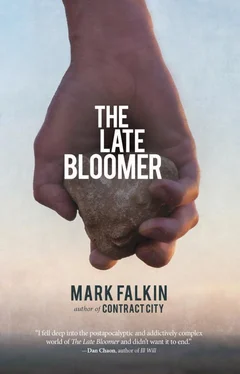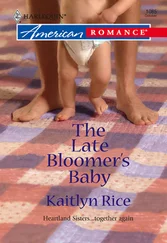The first six photos in the stack are the portraits. Each of them has posed with the folk art wooden cigar chomping man standing here like he’s a spring break buddy, Mr. Party, the older weirdo guy hanging around spring breakers and nobody knows who he is but the intoxication is so total that nobody asks or cares. Old-world cupidity and sex is in their eyes despite having fled out to this dog rescue ranch at the end of their world.
The next six are group shots, five people in each. They are petting the dogs out in the pens, sitting on chairs outside on the landing which gives a view to the thousand foot high hills. One guy carves a pumpkin in each of these, not looking up at the camera. No beer cans, not many smiles. One girl, Kimberly (cross-referencing the inscribed portraits), seems to really have it for one of the guys, a Lance—he of the backwards-set ball cap and throw-pillow pecs under Hollister tee—by her torchy glances at him in each. Lance, ever aware of the lens, smolders for it, for all the ladies out there, seeming to forget there’s nobody left but them. Old habits die hard for smoldering dudes. I understood. Sure I did. Probably had his shirt off later, prancing around after a couple of brews.
And my nasty little brain uttered to nobody but me: Will the world miss these people?
This must have been Halloween day, the day the ham operator, Chris, made contact. The last one, a thirteenth photo I found off by itself on the desk, is a selfie, taken here in this room, his face washed out from the flash. Deep black doom in the eyes. A selfie because he’s the last one.
He has written at the bottom—I’m certain it’s Chris’s script, from his other, happier headshot—the two short words I used as the clever title to my extra credit essay for Mr. E’s English class.
Both end with an O .
You guessed it.
Mr. E’s words, in his voice from his note at the top of the essay’s title page, echo here: You really saw this didn’t you?
Mrs. Fleming’s shout from across the street echoes right after it: You knew, didn’t you?
I put my hands flat on the desk at either side of the array, elbows locked, head thrust down, and I looked into each face, found the good in each, quickly came to know them as their mothers’ children and that they all had the same secret, sane, and simple desires of the heart as I do.
Were the dogs heard on the ham just baying at the Halloween moon?
“Who knows?” I said to Maggie, who twisted an ear at me. “No shattered windows. Nothing like what those little shits did to us.”
Through the window I see a vulture swoop down over the empty pen. No shadow followed it. Its flight embodied patience, a scanning glide, knowing there always would be plenty of death upon which to feast. I pick up and look at the developed Polaroid I’d just taken. My brow creases and my stomach clenches. I angle the photo to the window to see it better.
In the extreme top left corner of the photo, I see a foot. The toe of a small-sized tennis shoe.
My heart thuds against the roof of my mouth.
Prickles of gooseflesh shoot across my entire skin as fast as kid movements, a wave of it moving over me instantaneously.
Before I could turn around—“I knew you’d come.”
The child’s voice issued from the gloom. Maggie and I spun around. She growled deep and long and stayed put.
The kid emerged from the shadow behind the office door. He stepped out, holding his hands behind his back. I never sensed him. Maggie hadn’t either. The somehow is what bothers me now. That boy had to have been standing there stone-still the entire time we perused the room. That Maggie didn’t notice his presence still confounds me, confirming that he and they are of a thoroughly different kind.
The boy was maybe ten, and though younger than Johnny, he was taller, having brown straight hair that looked neat as if he’d just combed it. He wore the clothes of a young lad off to school, clothes maybe his mother had laid out for him after he’d fallen asleep on his bed populated with stuffed animals, something she didn’t do much anymore because he was such a big boy now. His long-sleeved light blue oxford, which still held the shape ironed into it, was tucked into chinos a little big on him, his mother no doubt in the habit of buying her sprawling son’s clothes two sizes ahead now that his spurts seemed unceasing. His tennies had seen some wear but no time out in this recent rain.
Though he had the voice of a normal child, there came a resonance with it, as if his voice were not simply on the cusp of acquiring preteen depth, but that it wanted to go straight to a young adult’s. It had a disquieting flange vocal effect to it, as if two voices issued out at once but at a slight timing difference so that it twined around itself. Twined and swirled. It sounded… wet, and made me dizzy.
“Are you going to hurt me?” he asked. The layered voices entwining tighter. His voice made me want to scream.
I shook my head. “No,” I said, clearing my voice. He blinked at me with inquisitive calm. Oh—he unnerved me.
Maggie, though rigid with fury, had no inclination to move. A standoff, us three.
The boy broke first, his hands relaxing at his sides, and as he stepped more into the light of the office, I noticed deep indentations on the bridge of his nose. Only then did it occur to me that not one kid I’d seen since the morning of, other than Simon, wore glasses. In looking at them through binoculars, something else had bugged me. That was it. No glasses. Mr. Fleming had mentioned this as well in his note.
The boy glanced down at Maggie. With effort, he lifted his chin and looked back at me. He hid his terror of her deep in his blue eyes. His nostrils flared, venting his pent fear.
“Your dog?” he asked, his voice normal now.
“Now she is. I saved her, brought her here with me.”
“You came from one of the cities.” Though I preferred this voice to the other, the result of his deception was coldness. I nodded.
Maggie stifled her growl. You felt the air move from her throat’s oscillations. I know the kid felt it.
“How long have you been here?” I asked.
“I don’t know.”
“You don’t know?”
“I don’t remember.”
“Where are you from?”
He shook his head. The dogs in the other part of the house made a scuffling noise and the boy shot his eyes in their direction. “You don’t know where you came from, how you got here. Where are your parents?” Me, the interrogator.
“I don’t know.”
He said this honestly, not seeming to comprehend they were dead. His ironed shirt made me sad for him.
“Do you know what’s happened? Out there?” I gestured to the window. “Do you even remember your parents?”
“I remember everything, but it seems so far away, a long time ago. Whenever I try to remember something, like my parents, or where I used to live, it’s cloudy. It’s muffled. As soon as I start thinking about back then, it feels like my head gets filled with cotton and it starts to hurt, so I quit trying.” Cotton made me think of the white stuff. He started to cry, and when he did that, his voice went wet and flangey again and while I wanted to comfort him, what I really wanted was for his throat to quit making that noise.
“Hey, it’s okay.” I took a reluctant step forward. I put my hand on his shoulder. The moment my hand rested there, he stepped into me, put his nose to my collar bone and sobbed. That awful flange unabated closer to my ear now. “Hey, hey, hey it’s going to be okay, all right? Settle down.”
I glanced back at Maggie. She hadn’t moved.
“Have you eaten anything?” I asked. He shook his head in my chest. “You hungry?” He nodded and stepped back.
Читать дальше












